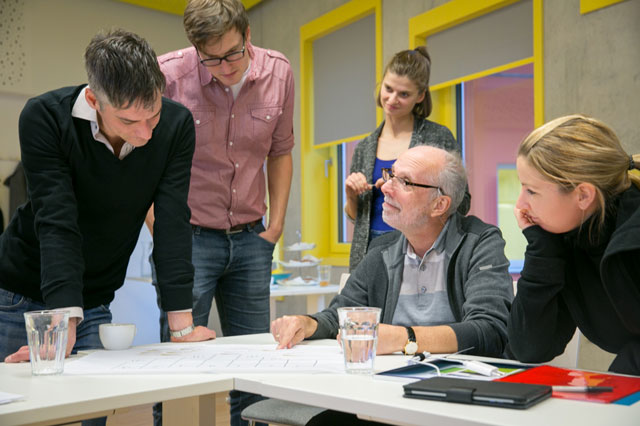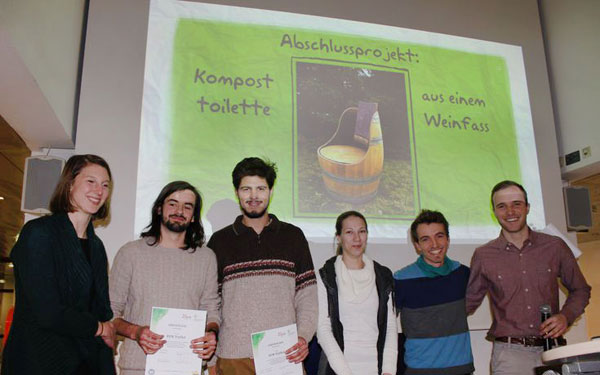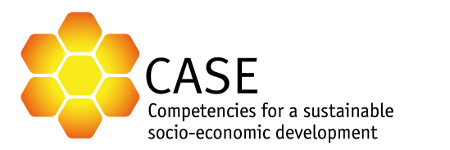 What is it about?
What is it about?

Internships offer real-life experience and the opportunity to apply and deepen knowledge within an organization – from start-ups to established companies. Students can acquire a variety of useful skills and get an orientation what their future field of activity could be. The organizations engage with young and motivated people, get to know potential employees or partners, and ideally adopt a learning attitude open for fresh ideas and new perspectives. Providing training on the job, the format is practice- and action-oriented.
Suitable challenges should be identified within the organization, meeting a concrete demand. The tasks should allow the application of and deepening knowledge acquired at university. Internships can either be done in a block, lasting from a few weeks up to six months, or they can be done intermittently, lasting some hours or days per week, in parallel to lectures and seminars during the semester.
Define selection criteria for internship providers (e.g. start-ups) and start scouting the partners, considering variety. Consult the partners when designing the course to best integrate their expectations. Plan enough time for attracting students after having contracted the partners. A well-prepared promotion campaign using e.g. social media or newsletters helps to find the “right” participants, especially when you aim at mingling disciplines from different universities. Students must apply by sending a motivation letter, their curriculum vitae (CV), and a partner preference.
The partner must find a suitable challenge with clearly defined tasks, responsibilities and roles as they give orientation. The objective is to receive tangible results in the end. Matching the organizational partners needs and students’ (preferably as teams of 2-5) profiles is a crucial step. Both receive an extensive briefing concerning expectations and procedures. These two aspects decide substantially on the success of the internship. It is recommended to sign a confidential disclosure agreement for the partners’ protection.
During the internship itself, an agreement between the respective students and the partner on working conditions – like working hours and remuneration – is essential. The presence at the work place and ways of communication must be clarified. Ideally, there is a contact person responsible and available for questions. Regular meetings and a supportive (not lecturing) attitude of the partner will improve the cooperating atmosphere and eventually the results.
A midterm meeting of all participants allows a presentation of interim results, exchange of learnings and experiences, reflection and thus mutual learning. Teambuilding and dealing with conflicts may become relevant issues.
Sharing results, experiences and learnings can best be facilitated by organizing a final (public) event. All projects realized during the internships are presented and ideally the contact person of the organization participates with a statement on the relevance of the project results. Additionally, a presentation may take place at the partner organization. Issuing a certificate rewards the students’ engagement and may serve as documentation for their CV.
Profiling internship – Inclusion
Based on inclusive pedagogy, this course enabled students to appreciate disabled people’s concerns and understand the mechanisms and frameworks needed to translate the Convention on the Rights of Persons with Disabilities into practice. After having completed an internship in an institution with disabled persons, students reflected on theoretical aspects of inclusion and its pedagogical implications and worked out how to design inclusive settings for future work places.
ECN TryOut final event.
TryOut
For six weeks, four student teams had the chance to work within a start-up. This special form of an internship with hands-on approach was designed and realised by the inter-university Entrepreneurship Centre Network (ECN). Experiencing life in a young company was a unique and inspiring moment for the students. A colorful variety of start-ups hosted the TryOut: Neuschnee, Wohnwagon, Topfreisen and DirectSens.
 Benefits
Benefits
- New ideas, innovative approaches and solutions for organizations
- Gaining professional insights into the business world
- Tackling practical obstacles, taking responsibility for project realization
- Concrete results, tangible output
 Success factors
Success factors
- Selection of interesting and relevant organizations
- Extensive briefing of students and partners
- Openness and curiosity of students
- Partners’ commitment in allocating time and effort
 Challenges
Challenges
- Finding creative and problem-solving tasks (not solely executive)
- Matching students’ profiles with partners’ requirements
- Time allocation of students
- Offer payment or credit points (ECTS) rewarding the students’ work
 Supporting material
Supporting material
General overview
Tools
Templates
 Contacts and experts
Contacts and experts
- Rudolf Dömötör, Vienna University of Economics and Business, Austria
- Marco Rieckmann, University of Vechta, Germany

 Phase 1 – Planning
Phase 1 – Planning
 Phase 2 – Preparation
Phase 2 – Preparation
 Phase 3 – Starting
Phase 3 – Starting
 Phase 5 – Final Presentation
Phase 5 – Final Presentation
